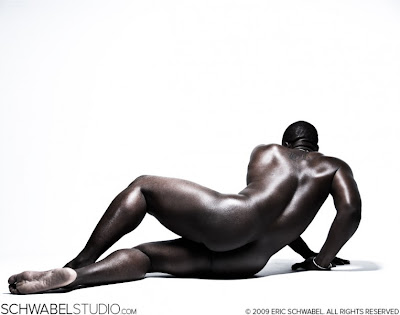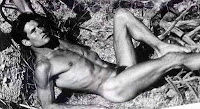 "The naked truth" by Eric Schwabel (see also 15.5.10)
"The naked truth" by Eric Schwabel (see also 15.5.10)  for 'The Advocate' magazine; a white floor, a white wall, no tricks.
for 'The Advocate' magazine; a white floor, a white wall, no tricks.

















http://schwabelstudio.com/
this blog is about the male image in arts, photography, comics, music, fashion, movies, advertising, culture physique, and contains explicit nude images. by viewing this site you consent to be 18+.
 "The naked truth" by Eric Schwabel (see also 15.5.10)
"The naked truth" by Eric Schwabel (see also 15.5.10)  for 'The Advocate' magazine; a white floor, a white wall, no tricks.
for 'The Advocate' magazine; a white floor, a white wall, no tricks.

















 Con le fotografie diventate icone per Ralph Lauren e Calvin Klein,
Con le fotografie diventate icone per Ralph Lauren e Calvin Klein,  Bruce Weber ha reinventato la fotografia di moda e l'idea della sessualità maschile contemporanea.
Bruce Weber ha reinventato la fotografia di moda e l'idea della sessualità maschile contemporanea.  Il suo film "Cho Suey" (98 minuti, realizzato nel 2000) è una indagine sulle ossessioni del grande fotografo: la vita della cantante lesbica Frances Faye,
Il suo film "Cho Suey" (98 minuti, realizzato nel 2000) è una indagine sulle ossessioni del grande fotografo: la vita della cantante lesbica Frances Faye,  le memorie dell'esploratore inglese Sir Wilfred Thesiger e, storia principale nel film, i cambiamenti personali dell'ultima musa e feticcio Peter Johnson, scoperto da Bruce diciassettenne membro della squadra di wrestling della Università dello Iowa. Il film, come gran parte del lavoro di Weber, è prima di tutto un autoritratto molto privato e rivelatore con molte domande e molte risposte come appunti associati liberamente sulle varie persone incontrate e conosciute.
le memorie dell'esploratore inglese Sir Wilfred Thesiger e, storia principale nel film, i cambiamenti personali dell'ultima musa e feticcio Peter Johnson, scoperto da Bruce diciassettenne membro della squadra di wrestling della Università dello Iowa. Il film, come gran parte del lavoro di Weber, è prima di tutto un autoritratto molto privato e rivelatore con molte domande e molte risposte come appunti associati liberamente sulle varie persone incontrate e conosciute.  Bruce ha dichiarato in un' intervista al quotidiano inglese 'The Observer': "E' un film su come le cose non debbano andare per forza sempre in modo scontato. Io spero che qualcuno che vive in una qualche sperduta piccola città possa avere la spinta di seguire la propria strada".
Bruce ha dichiarato in un' intervista al quotidiano inglese 'The Observer': "E' un film su come le cose non debbano andare per forza sempre in modo scontato. Io spero che qualcuno che vive in una qualche sperduta piccola città possa avere la spinta di seguire la propria strada".  Il film racconta il suo viaggio dalla provinciale cittadina agricola dell' infanzia di Greensburg, Pennsylvania, al successo nella New York della moda.
Il film racconta il suo viaggio dalla provinciale cittadina agricola dell' infanzia di Greensburg, Pennsylvania, al successo nella New York della moda. With his iconic photographs for Ralph Lauren and Calvin Klein, Bruce Weber has reinvented the fashion photography and the idea of male sexuality in our times.
With his iconic photographs for Ralph Lauren and Calvin Klein, Bruce Weber has reinvented the fashion photography and the idea of male sexuality in our times.  His film "Chop Suey" (98 mins, production year 2000) is an exploration of some of the photographer's longstanding obsessions: the life of the lesbian singer Frances Faye, the memories of the English explorer Sir Wilfred Thesiger, and, main story,
His film "Chop Suey" (98 mins, production year 2000) is an exploration of some of the photographer's longstanding obsessions: the life of the lesbian singer Frances Faye, the memories of the English explorer Sir Wilfred Thesiger, and, main story,  the personal transformation of Weber's latest model and muse, Peter Johnson, discovered by Bruce when he was 17 and in the Iowa University's college wrestling team. The film, like much of Weber's work, is, first of all, a very private revealing self-portrait with many questions and many answers in a free-associated scrapbook of encounters.
the personal transformation of Weber's latest model and muse, Peter Johnson, discovered by Bruce when he was 17 and in the Iowa University's college wrestling team. The film, like much of Weber's work, is, first of all, a very private revealing self-portrait with many questions and many answers in a free-associated scrapbook of encounters.  Bruce said in an interview to the english paper "The Observer": 'It's a film about how things don't have to go in their normal progression. I hope that somebody in a small town somewhere might be inspired by it to go their own way.'
Bruce said in an interview to the english paper "The Observer": 'It's a film about how things don't have to go in their normal progression. I hope that somebody in a small town somewhere might be inspired by it to go their own way.'  The film dramatises Weber's own journey from his provincial childhood in the mining and farming town of Greensburg, Pennsylvania, to success in fashionable New York.
The film dramatises Weber's own journey from his provincial childhood in the mining and farming town of Greensburg, Pennsylvania, to success in fashionable New York.